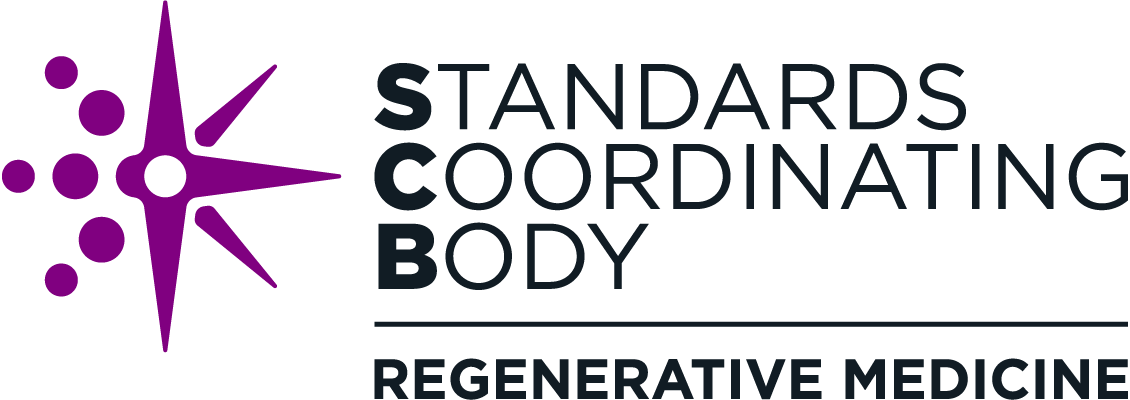SCB-Led Effort Results in New Labeling Standard for Cell Therapy Products
The Standards Coordinating Body (SCB) is proud to announce that another SCB-coordinated standard project has culminated in the publication of a standard. The new standard, ST-018 ISBT-128, Standard Labeling of Collection Products for Cellular Therapy, builds on existing ISBT 128 standards to address information necessary for apheresis products used in cell therapy manufacturing, including new label fields such as intended recipient and collection site identifier. The standard was made possible through the efforts of ICCBBA, along with 14 other contributing organizations (see below).
The new standard will benefit:
Apheresis centers, by introducing a single, streamlined labeling process that saves time, reduces the chance of errors, and removes the need for training on multiple labeling processes for different manufacturers
Manufacturers, by ensuring consistency of data from different apheresis centers and reducing the costs and burden associated with offsite printing or manufacturer-specific printer installation and training at apheresis centers
Patients, by reducing the risk of mistakes related to unclear labeling information and increasing the quality and consistency of collection products
“This standard is incredibly valuable because it will ease the burden on apheresis centers,” according to SCB Senior Scientific Program Manager Dawn Henke. “It will make the collection process easier for apheresis center staff, increase the quality of collection products, and reduce risks to the patient.”
This standard advancement effort begin in early 2019, when stakeholders at the Realizing the Benefit of 21st Century Cures Through Standards Development workshop--convened by the U.S. Food and Drug Administration (FDA), National Institute of Standards and Technology (NIST), SCB, and Nexight Group--identified a crucial need for regenerative medicine specific labeling standards. The standard need was explored further at a Deloitte industry working group meeting, following which SCB assembled a group of interested experts to draft the standard with the support of ICCBBA, which has made the new standard available to the public at no cost.
In addition, SCB worked directly with labeling technology providers (e.g., printers and printer software developers) during standard development, enabling them to work concurrently on relevant systems so that implementation can proceed rapidly now that the standard is available.
Currently, SCB is working with experts from the community to develop an implementation guide to complement the standard. As a follow-up project, SCB is coordinating an effort to establish a universal scheme to enable chain of custody (COC)/chain of identity (COI) information to be tracked throughout the entire manufacturing process.
Contributing organizations involved in this standard advancement effort include:
bluebird bio
GlaxoSmithKline
Gilead Sciences
Johnson & Johnson
Juno Therapeutics
Kite Pharma
Legend Biotech
National Marrow Donor Program (NMDP/Be The Match)
Deloitte
AABB
Foundation for the Accreditation of Cellular Therapy (FACT)
SCB
TrakCel
Vineti
About SCB
The Standards Coordinating Body (SCB) is an independent non-profit organization focused on accelerated advancement and improved awareness of the standards and best practices that address the rapidly evolving needs of the global regenerative medicine advanced therapy community. Founded in 2017 to support the growth of the regenerative medicine industry by the Alliance for Regenerative Medicine (ARM) and other regenerative medicine stakeholders, the SCB works with a range of sector leaders, including the National Institute of Standards and Technology (NIST), to address areas critical to the growth of advanced therapies, such as standards for rapid microbial testing, cell collection, in-process labeling for cell collection, ancillary material quality, and more. Organizations that participate in SCB standards advancement activities help accelerate regenerative medicine innovation. The SCB is based in the Washington D.C. area, and encourages global, sector-wide participation in its standards advancement activities.
